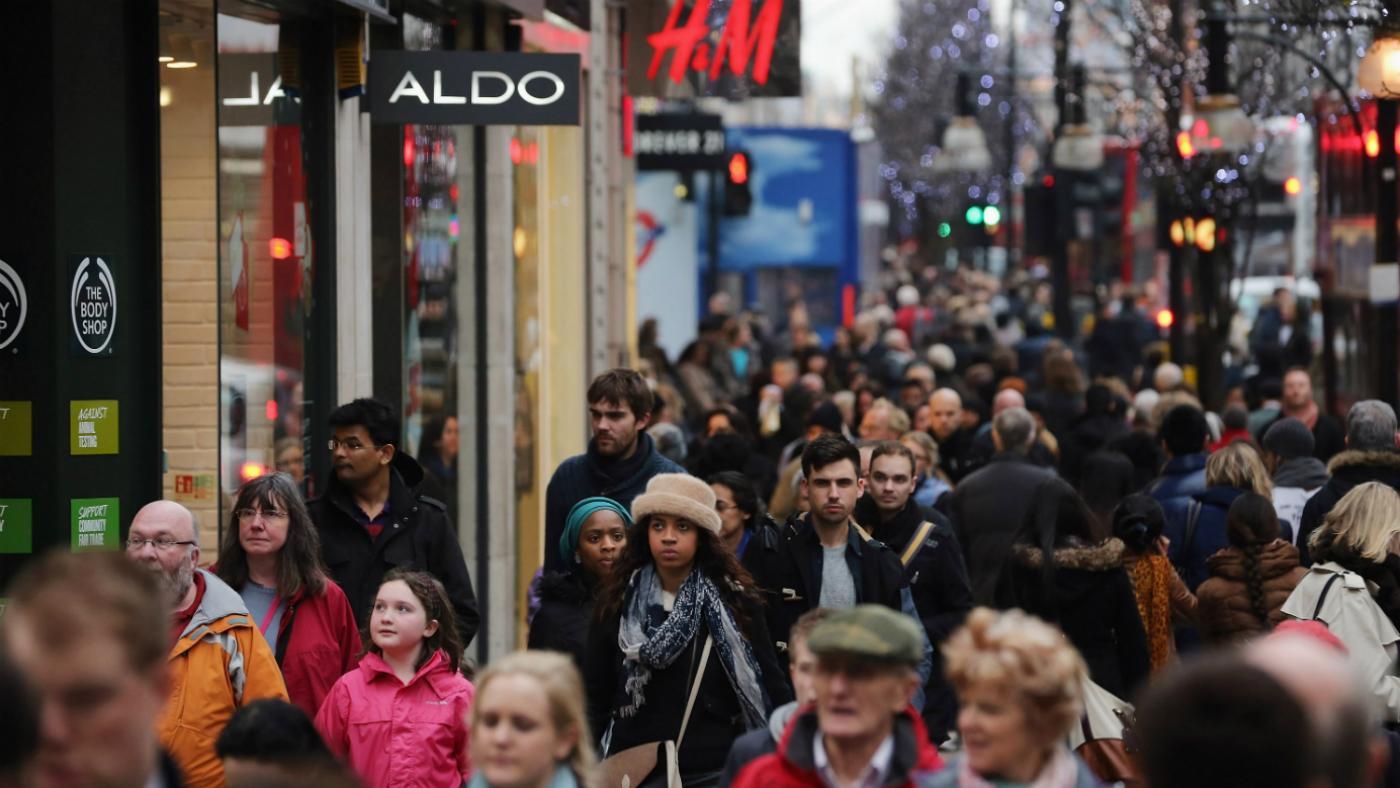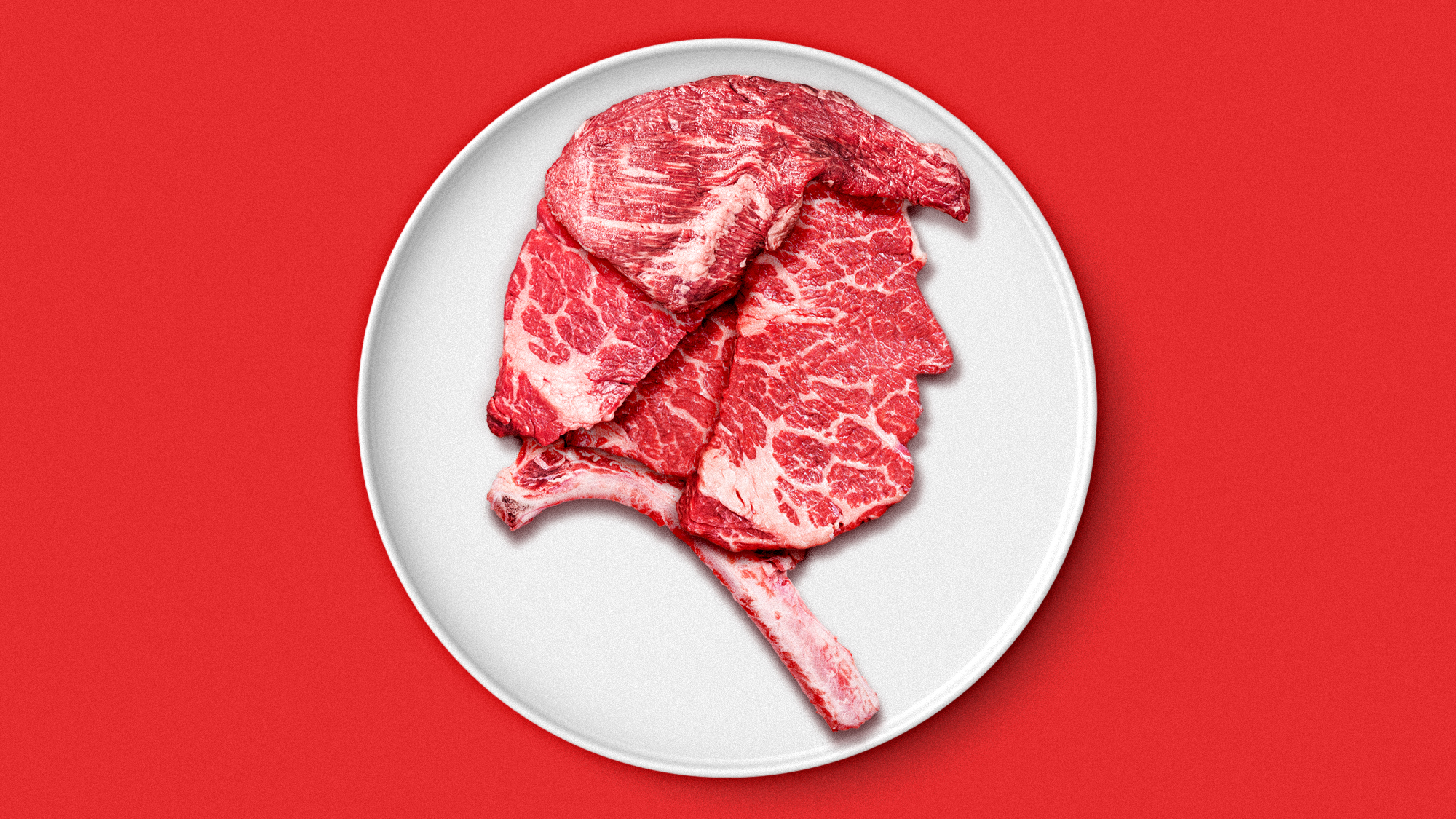UK households' saving power falls to record low
Britons less able to put money away now than at any time in the last four-and-a-half decades

A free daily email with the biggest news stories of the day – and the best features from TheWeek.com
You are now subscribed
Your newsletter sign-up was successful
A pinch on real incomes means that at the end of last year, Britons were able to save less than at any time in the last four-and-a-half decades, official figures reveal.
Economists warn the problem will likely get worse, too, as inflation is rapidly picking up pace in response to the pound's fall following last year's Brexit vote.
All in all it is bad news for the economy, which relies heavily on consumer spending that could be set to fall markedly. Around 80 per cent of GDP is made up of activities related to the services sector.
The Week
Escape your echo chamber. Get the facts behind the news, plus analysis from multiple perspectives.

Sign up for The Week's Free Newsletters
From our morning news briefing to a weekly Good News Newsletter, get the best of The Week delivered directly to your inbox.
From our morning news briefing to a weekly Good News Newsletter, get the best of The Week delivered directly to your inbox.
Today's release from the Office for National Statistics was at first glance positive, says the BBC.
Economic expansion was 1.8 per cent in 2016, in line with earlier estimates, while growth came in at a healthy 0.7 per cent for the fourth quarter.
"Beneath the surface, though, some more worrying signs are evident," said John Hawksworth, chief economist at PwC.
The savings ratio - described by The Guardian as "the amount of money households have available to save as a percentage of their total disposable income" - fell from 5.3 per cent in the third quarter to 3.3 per cent in the fourth. That is the lowest figure recorded since the ONS began compiling records in 1963.
A free daily email with the biggest news stories of the day – and the best features from TheWeek.com
In addition, real incomes - earnings growth once the devaluing effect of inflation is taken into account - fell by 0.3 per cent and household debt jumped to its highest in nearly 30 years at £11bn.
In short, the figures paint a picture of households seeing the value of earnings dip and having to raid savings or borrow more on credit cards and overdrafts to maintain their lifestyle.
It could be a cause for concern if household debt, which is currently the subject of a Bank of England review, keeps spiralling higher. But equally, the wider economy would suffer if consumers reined in their spending habits.
That is precisely what analysts are suggesting could happen. These figures relate, after all, to a period when inflation was less than one per cent; it hit 2.3 per cent in February and is expected to reach three per cent this year.Martin Beck, senior economic adviser to the EY Item Club, said: "2017 is likely to be a very tough year for the consumer, with little or no scope to offset the headwinds from higher inflation by borrowing more."
-
 Ex-South Korean leader gets life sentence for insurrection
Ex-South Korean leader gets life sentence for insurrectionSpeed Read South Korean President Yoon Suk Yeol was sentenced to life in prison over his declaration of martial law in 2024
-
 At least 8 dead in California’s deadliest avalanche
At least 8 dead in California’s deadliest avalancheSpeed Read The avalanche near Lake Tahoe was the deadliest in modern California history and the worst in the US since 1981
-
 Political cartoons for February 19
Political cartoons for February 19Cartoons Thursday’s political cartoons include a suspicious package, a piece of the cake, and more
-
 Will Trump’s 10% credit card rate limit actually help consumers?
Will Trump’s 10% credit card rate limit actually help consumers?Today's Big Question Banks say they would pull back on credit
-
 What will the US economy look like in 2026?
What will the US economy look like in 2026?Today’s Big Question Wall Street is bullish, but uncertain
-
 Is $140,000 the real poverty line?
Is $140,000 the real poverty line?Feature Financial hardship is wearing Americans down, and the break-even point for many families keeps rising
-
 Fast food is no longer affordable for low-income Americans
Fast food is no longer affordable for low-income AmericansThe explainer Cheap meals are getting farther out of reach
-
 Why has America’s economy gone K-shaped?
Why has America’s economy gone K-shaped?Today's Big Question The rich are doing well. Everybody else is scrimping.
-
 From candy to costumes, inflation is spooking consumers on Halloween this year
From candy to costumes, inflation is spooking consumers on Halloween this yearIn the Spotlight Both candy and costumes have jumped significantly in price
-
 Why are beef prices rising? And how is politics involved?
Why are beef prices rising? And how is politics involved?Today's Big Question Drought, tariffs and consumer demand all play a role
-
 Fed cuts interest rates a quarter point
Fed cuts interest rates a quarter pointSpeed Read ‘The cut suggests a broader shift toward concern about cracks forming in the job market’